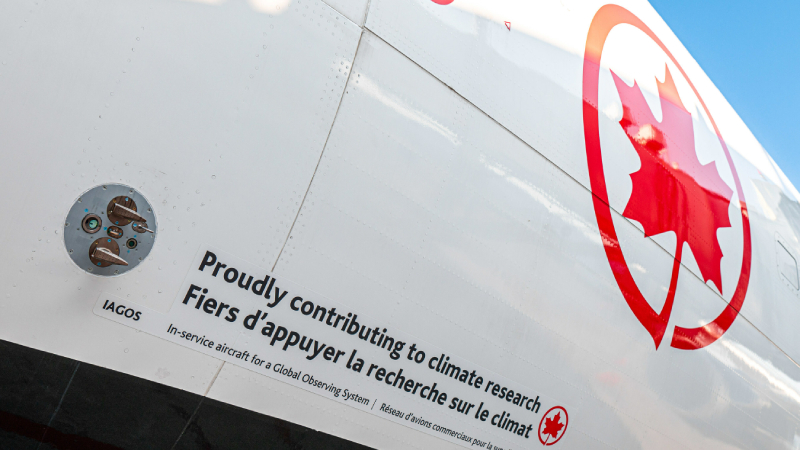
Air Canada announced on 17MAY that one of its Airbus A330 aircraft has been outfitted with special diagnostics sensors in partnership with In-Service Aircraft for a Global Observing System (IAGOS), an international non-profit organization that uses commercial aircraft as a global observation platform of climate change and air quality.
According to Air Canada, this collaboration will allow IAGOS to collect worldwide data on climate parameters, which will be used by the international scientific community as well as forecasting services for research on climate change and air quality on a global scale.
"Air Canada is committed to full-scale sustainability and working with IAGOS is a meaningful way we can contribute to the collection of valuable, global data on climate parameters for further science research. The information gathered will also help provide more accurate weather data crucial for airline operations, and will enable a more in-depth understanding of changing weather dynamics," said Valerie Durand, Head of Investor Relations and Corporate Sustainability at Air Canada.
The IAGOS notes that Air Canada will provide "important new data" to understand climate change issues in northern regions, which are reportedly warming more than twice as fast as elsewhere, along with new data for tracking wildfire smoke plumes across North America to improve forecasts of air-quality.
"After only a few days in operation, the aircraft has already detected exceptional levels of carbon monoxide over eastern Canada emanating from the intense wildfires in Alberta. Scientists will use these data to understand the impact of events like this on the atmosphere, on air quality and ultimately on climate," said Dr. Hannah Clark, Executive Secretary for IAGOS-AISBL.
As part of the partnership, Air Canada has installed IAGOS's climate research monitoring devices on Fin 939, one of its A330-300 widebody aircraft. The device will measure a range of parameters, including ozone, water vapour, greenhouse gases, reactive gases, aerosols, clouds, etc. during various stages of flight, including take-off, cruising altitude and landing.
The A330, one of only two aircraft types approved for the IAGOS systems along with the A340, flies a mix of trans-Atlantic and trans-continental flights for Air Canada.
The IAGOS device features measuring probes which are permanently installed on the aircraft, near the flight deck. After each flight, the measurement data is automatically transmitted to the central database of the CNRS (Centre National de la Recherche Scientifique) research centre in Toulouse, France.
For more information, visit the respective websites of Air Canada and IAGOS.





